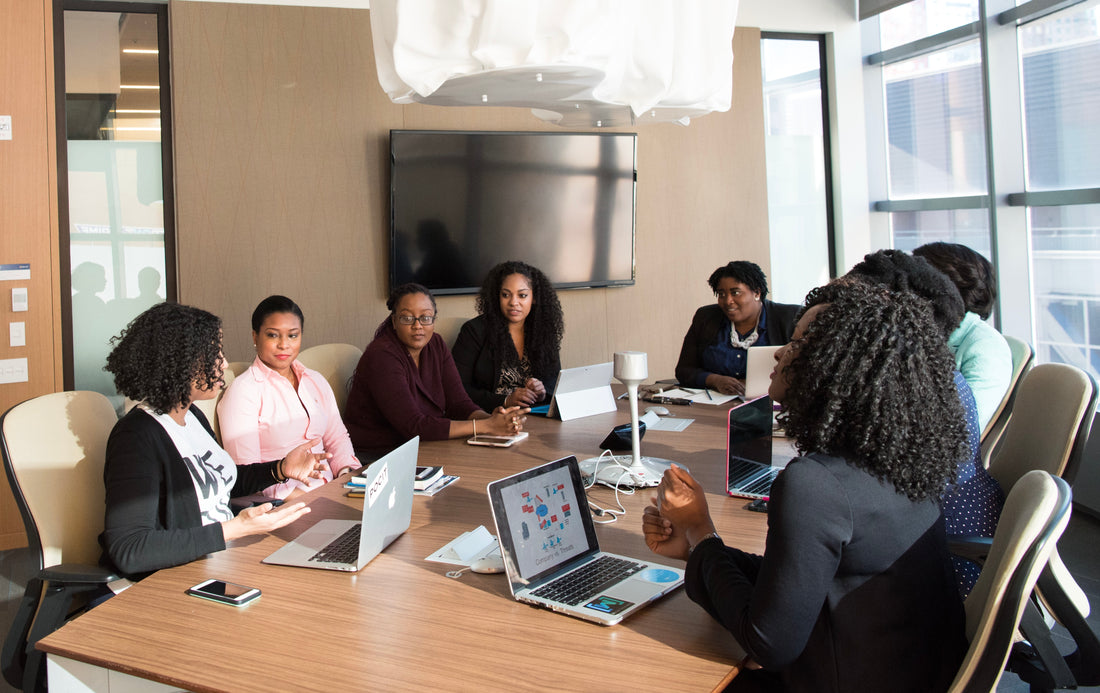
Why Black Women Should Double Down On Black Beauty Brands Now As An Act Of Resistance
Share

Photo credit: Christina Morillo
Clean beauty sales are experiencing a forty-two percent growth. Prestige clean beauty is up eleven percent. This trend is projected to reach $22 billion in sales by 2024.
In the age of wellness, social and eco consciousness, clean beauty is increasingly popularized by the mainstream beauty industry. With clean beauty sales soaring, why is the beauty industry lagging behind in providing cleaner, less toxic products for Black women? Less than one-quarter of products marketed to Black women are categorized as low toxicity.
In 2020, the “call-out culture” forced the beauty industry to face a national reckoning that magnified its racism and lack of representation in all aspects of beauty.
This is why Black women should double down on black beauty brands now as an act of resistance.
Health problems are on the rise
By 2050, people globally will not be able to reproduce without fertility assistance. This is due to overexposure to toxic chemicals in our beauty products. Black women have greater reproductive disparities than any other group.
Breast and cervical cancer combined are the number two killer of Black and brown women. Black women are three times more likely to have uterine fibroids than other races. Black women are more likely to suffer from fibroids at a younger age, be hospitalized and undergo surgery due to fibroids.
Exposure to these toxic chemicals affects fertility, pregnancy, and neurodevelopment.
Overexposure to synthetic chemicals in urban areas
Approximately fifty percent of African Americans live in cities and metro areas. Research shows that urbanization decreases healthy skin bacteria, increases pathogenic (bad) bacteria and fungi.
This is due to environmental toxins, household cleaning products, detergents, medications, and personal care products. Hence, beauty products with high amounts of toxic ingredients contribute to the assault on a healthy skin ecosystem.
Black dollars matter
African American women use and spend more money on personal care products. African American women spent $7.5 billion per year on beauty products. We spent 80% more on cosmetics and twice as much on skincare than the white female market. African American women are the driving force of the beauty industry.
African women were on the forefront of natural beauty
With skincare being the top selling clean beauty category, why would the beauty industry continue to ignore us? African and African American women have been on the forefront of clean, natural beauty since the days of Kemet (modern-day Egypt).
The Africans used seed oils and creams to shield themselves from the sun. They blended herbs and plants for balms. Ancient Egyptians used castor oil for cleansing the skin, black seed oil for healthy, beautiful skin, and baobab oil to nourish and soften skin.
Marula oil has been a way of life for southern African people. It’s been used as a cosmetic healing oil for face, feet, hands and as a body oil.
Kalahari Melon seed oil dates back over 3000 years in the Kalahari and Sahara deserts. The ancient Egyptians used it to maintain healthy skin. In Namibia, Kalahari Melon seed oil is used to make soaps.
Cleopatra even knew the value of shea butter. She used it for her skin and hair. Cleopatra traveled with large jars of shea butter. Clay jars of shea butter were also found, unspoiled, in her tomb.
Black women deserve more
We deserve more than fifteen percent shelf space and we shouldn’t have to “call-out” companies shaming them to do the right thing. We create culture and set trends. We need to recognize our economic power, stop begging for a seat at a table where we’re not respected, and build our own table as the ultimate act of resistance.
